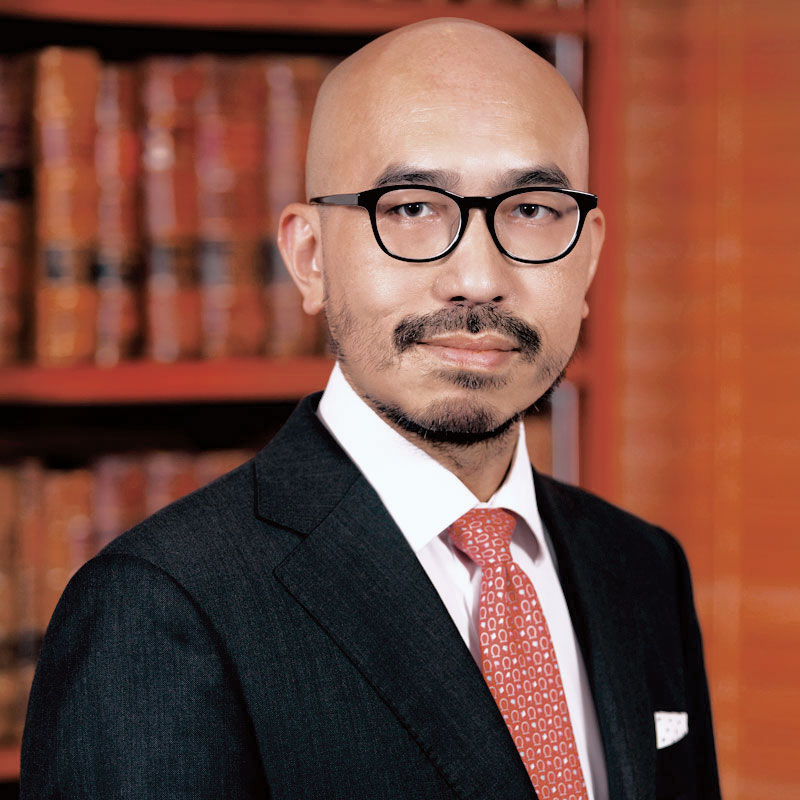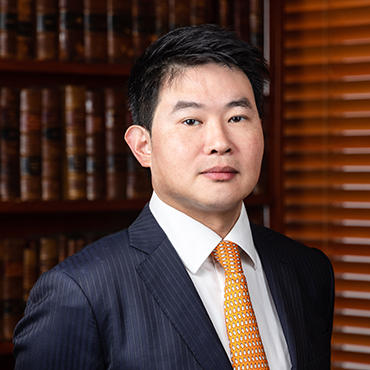Secretary for Justice v Persons Conducting in Acts Prohibited Etc [2023] 5 HKLRD 675, [2023] HKCFI 2741 (Steven Kwan, Albert NB Wong)
Gladys Li SC, Steven Kwan, Albert NB Wong and Yvonne Leung represented the applicant (Ms Chow Hang Tung) in Secretary for Justice v Persons Conducting in Acts Prohibited Etc [2023] 5 HKLRD 675, [2023] HKCFI 2741.
The Secretary for Justice (the SJ) commenced proceedings and sought an injunction to prohibit certain acts (the Acts) that related to the song known as “Glory to Hong Kong” against unnamed persons conducting the Acts and those who would conduct the same in the future (the Defendants), said to endanger national security. Given the nature of the injunction, an order was made, inter alia, for service of the Writ to be by way of publication online, exhibition of notice and issuance of a press release (the Service Order). X sought to be heard on the application for the injunction and solicitors acting for her faxed a Notice of Intention to Defend to the Department of Justice (the DOJ). To comply with the terms of the Service Order, the DOJ then served the relevant papers on X. In correspondence with the DOJ concerning the locus of X, X indicated through her solicitors that she intended to oppose the injunction as “opposing party” and not a defendant to the proceedings. The Court heard the application without allowing her legal representatives to be heard but made note that submissions filed on behalf of X on the injunction would be considered for the purpose of determining the injunction. The decision on the injunction was subsequently handed down and the SJ was granted leave to appeal against that decision. X then took out a summons to be heard on the appeal and applied for declaratory relief as to her status. Her unequivocal stance was that she was not a person conducting or proposing to conduct herself in any of the Acts. X argued, inter alia, that she should be allowed to take part in the proceedings because she had been served with notice and therefore fell under the definitions of “defendant” and “party” under s.2 of High Court Ordinance (Cap.4) (the HCO).
Held, dismissing the application, that:
- (1) The substituted services process pursuant to the Service Order applied only to the Defendants. Since X did not fall within the descriptions of the Defendants, she could not claim to have been served under the Service Order. The definitions of “defendant” and “party” under s.2 of the HCO must be read with common sense bearing in mind the parenthesis. It could not be the case that where the identities of the Defendants were unknown and the Service Order was granted, that anyone and everyone who had been served would become a Defendant. Otherwise, it would lead to the unrealistic effect where everyone in Hong Kong would be a party since the Service Order had been served to everyone in Hong Kong. (See paras.37-39.)
- (2) Public interest in the matter did not justify people who were not conducting the Acts to be joined as a defendant. Instead, they could apply to be joined in the action as an intervener to speak for the public interest. The proper application should be made under O.15 rr.4 and 6 of the Rules of the High Court (Cap.4A, Sub.Leg.), where a party would be required to demonstrate a legitimate interest in the outcome of the action. (See paras.40-41.)
- (3) Parties who were not named by the SJ might be joined to the action by invoking the rules on joinder of parties. Therefore, X’s entitlement to be heard depended on meeting the requirements for joinder either as a party or as an intervener. There was no inhibition for her to make such an application (Hong Kong Housing Authority v Hsin Yieh Architects & Associates Ltd [2005] 1 HKLRD 801, dicta of Deputy Judge J Poon in Re Aurasound Speakers Ltd [2005] 4 HKLRD 382 distinguished). (See paras.36, 43-46.)
- (4) The Court was also unable to accept that X had been a party to this action since the service of the papers on her by the DOJ, which was plainly premised on the belief that she was a Defendant and to comply with the Service Order. The DOJ acted swiftly in seeking clarification and challenging her locus . X could not legitimately take advantage of such service when she knew that she was not a Defendant. (See paras.51-53.)
[The above is excerpted from the headnote to the report in HKLRD.]



